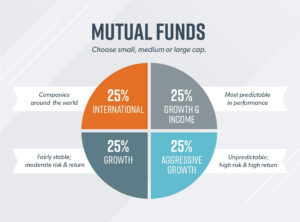Science of Getting Rich : Introduction
In a world where financial success is often revered as a symbol of accomplishment, “The Science of Getting Rich” has emerged as a topic of intrigue and aspiration. This ideology, popularized by Wallace D. Wattles in his timeless book of the same name, delves into the intricacies of wealth accumulation, mindset transformation, and the alignment of one’s actions with the principles of prosperity. In this comprehensive exploration, we will delve into the core principles of the science of getting rich, its historical context, and actionable steps individuals can take to manifest financial abundance in their lives.

Understanding the Historical Context
Published in 1910, “The Science of Getting Rich” predates the modern self-help movement and has inspired countless individuals on their journey toward financial empowerment. Wattles’ book was a pioneering work that laid the groundwork for many later personal development and self-improvement philosophies. Rooted in the belief that the universe is abundant and that anyone can tap into this abundance through conscious alignment, the science of getting rich emphasizes the importance of understanding the laws that govern wealth creation.
Core Principles of the Science of Getting Rich
1. The Power of Thought
Central to the science of getting rich is the understanding that our thoughts hold immense power. Wattles proposed that our thoughts, beliefs, and intentions have the ability to shape our reality. By maintaining a positive, focused mindset on wealth and abundance, individuals can attract opportunities and resources that align with their aspirations.
2. The Law of Attraction
The law of attraction, a cornerstone of the science of getting rich, asserts that like attracts like. In the context of wealth creation, this means that a person’s thoughts and emotions must align with the desire to attain riches. By maintaining a strong vibrational match between one’s thoughts and their financial goals, individuals can magnetize wealth into their lives.
3. Taking Inspired Action
While thoughts and intentions are powerful, they must be coupled with inspired action. The science of getting rich emphasizes the importance of taking proactive steps toward wealth creation. This involves identifying opportunities, cultivating a strong work ethic, and embracing a mindset of continuous growth and learning.
4. Gratitude and Visualization
Practicing gratitude and visualization are essential components of the science of getting rich. By expressing gratitude for existing blessings and envisioning a future filled with abundance, individuals create a positive atmosphere that attracts more of what they desire.
5. Overcoming Limiting Beliefs
One of the major challenges in manifesting wealth is overcoming limiting beliefs about money and success. The science of getting rich encourages individuals to identify and replace these limiting beliefs with empowering thoughts that support their financial goals.
Applying the Science of Getting Rich in Daily Life
1. Cultivate a Wealth Consciousness
Start by shifting your mindset from scarcity to abundance. Surround yourself with positive affirmations, success stories, and resources that reinforce the idea that wealth is attainable.
2. Set Clear Financial Goals
Define your financial goals with clarity. Whether it’s paying off debt, starting a business, or achieving a specific income level, having precise goals provides a roadmap for your journey.
3. Visualization and Affirmations
Incorporate daily visualization exercises where you vividly imagine yourself living the life you desire. Complement this with affirmations that reinforce your beliefs in your ability to achieve financial success.
4. Take Aligned Action
Identify steps you can take every day to move closer to your financial goals. This could include networking, skill development, or creating and seizing opportunities.
5. Practice Gratitude
Regularly express gratitude for your current circumstances and the progress you’ve made. Gratitude cultivates a positive mindset that attracts more abundance.
6. Continuous Learning
Invest in your personal and professional development. Stay curious, read relevant books, attend seminars, and acquire new skills that enhance your value in the marketplace.
Conclusion
“The Science of Getting Rich” is not a mere theory; it’s a philosophy that invites individuals to transform their lives by embracing the principles of abundance and prosperity. By harnessing the power of thought, aligning with the law of attraction, and taking inspired action, anyone can tap into the vast universe of wealth that exists around them. As Wallace D. Wattles’ timeless teachings continue to inspire generations, the science of getting rich remains a beacon of hope for those who aspire to unlock their financial potential and create a life of abundance. Remember, the journey to riches begins with a single step – the step toward believing in your own ability to manifest the life you desire.
FAQ About the Science of Getting Rich
Q1: What is “The Science of Getting Rich”?
“The Science of Getting Rich” is a philosophy popularized by Wallace D. Wattles in his book of the same name. It emphasizes the power of thoughts, the law of attraction, and taking inspired action to manifest financial abundance and success.
Q2: How can I shift my mindset from scarcity to abundance?
Cultivate a wealth consciousness by surrounding yourself with positive affirmations, success stories, and resources that reinforce the idea that wealth is attainable.
Q3: What are some practical steps to take aligned action?
Identify daily actions that align with your financial goals, such as networking, skill development, and pursuing opportunities that move you closer to success.
Q4: How does gratitude play a role in the science of getting rich?
Practicing gratitude helps cultivate a positive mindset that attracts more abundance. Regularly expressing gratitude for your current circumstances and progress can enhance your success.
Q5: Can anyone apply the principles of the science of getting rich?
Yes, the principles are applicable to anyone willing to adopt a positive mindset, practice visualization, take action, and believe in their ability to manifest their desired financial reality.
Q6: Is “The Science of Getting Rich” about instant wealth?
No, it’s about creating a mindset and lifestyle that attract sustained prosperity. The journey to financial abundance requires patience, dedication, and consistent effort.










